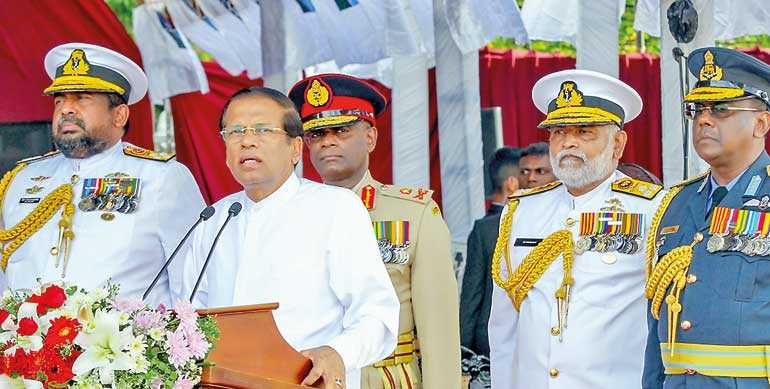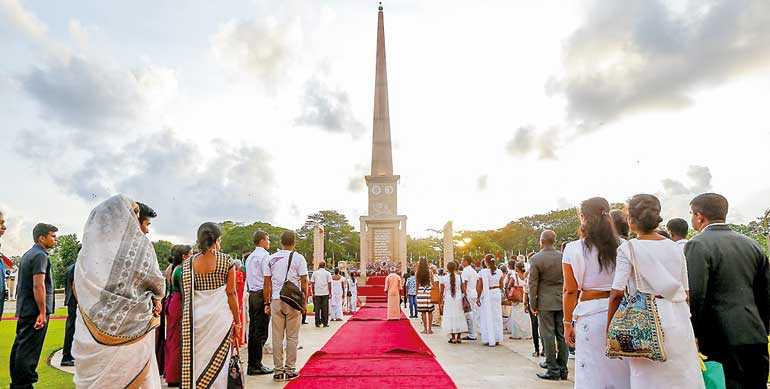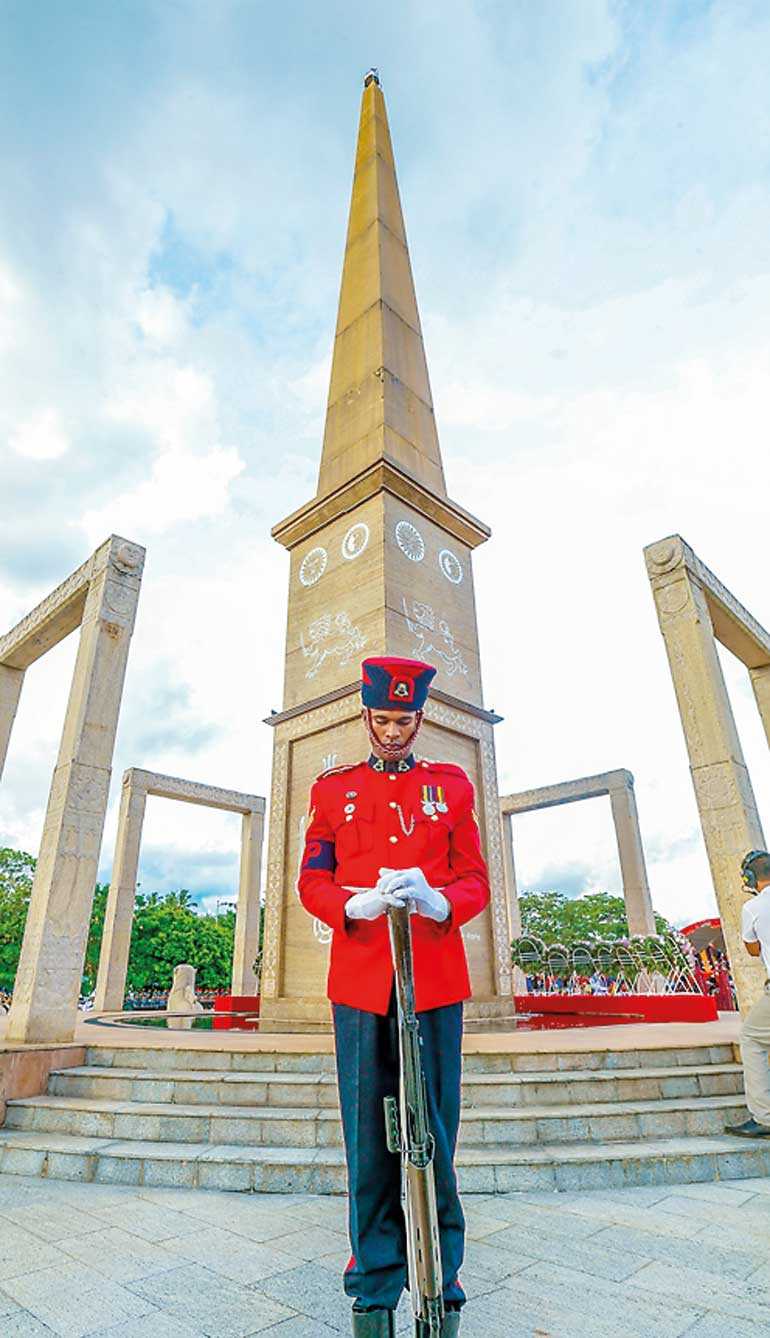Thursday Feb 19, 2026
Thursday Feb 19, 2026
Monday, 21 May 2018 00:45 - - {{hitsCtrl.values.hits}}

President Maithripala Sirisena on Saturday said that the security forces had not been accused of war crimes in the resolution of the United Nations Human Rights Council as certain media and extremist parties claimed.
President Sirisena said that such accusations were made by parties that supported the LTTE and were living abroad and those who were working against the Government and the security forces.
The President said this during his address at ‘National War Heroes Day’ held near the war heroes monument at Parliament grounds.
Speaking at the occasion, the President said that it was a shame that some had failed to identify the difference between a soldier and a terrorist.
President Sirisena stated that certain politicians and Non-Governmental Organizations which were after money failed to identify the difference between a soldier and a terrorist. He invited everybody who respected the country’s cultural heritage and wanted to work on its behalf and that of the citizens and the armed forces to join together with him.
The brave soldiers who sacrificed their lives will always be hailed by the nation and the government will always work to give them the highest respect and gratitude and also to look after the wellbeing of their families, the President said.
President Sirisena said that it was sad to see that certain government media channels had failed to portray the importance of the soldiers while non-state media did not talk about the programs conducted by the Government for the benefit of the soldiers. The President asked to work towards reminding the public of the great service provided by the soldiers for the country and to give them the highest dignity they deserve.
President Sirisena admitted that the soldiers should not be political victims and they should not be used to gain political power, change governments which are in power or organise political parties.
President Sirisena further stated that terrorism was now being beaten on the war front but yet it was not ideologically defeated and that he would not let the ideals of the extremists who dreamt of making a separate Eelam become a reality.
The President further stated that it was with the collaboration of friendly states that the Government made dedicated efforts to defeat this idea of breaking the country into pieces and that this would be conducted with the help of everyone in the future.
During the Annual National War Heroes Commemoration Day, President Sirisena offered flowers to the War Heroes Monument honouring the soldiers who sacrificed their lives for the country.

AFP: Sri Lanka’s President Saturday warned that Tamil extremists were regrouping abroad to revive their demand to divide the island nation nine years after the end of its decades-long ethnic war.
Maithripala Sirisena said government forces had failed to quash the Tamil rebels’ separatism, although they were militarily conquered by May 2009 following a no-holds-barred offensive.
“We have defeated the terrorism of the LTTE (Liberation Tigers of Tamil Eelam), but we have not been able to defeat their ideology,” Sirisena said.
At a ceremony to mark the ninth anniversary of the end of the war, Sirisena said Tamil extremists abroad were still hoping to establish an independent homeland in Sri Lanka.
“They are very active abroad. They protested when I visited London last month,” Sirisena said, referring to his participation at the Commonwealth summit. There has been no violence blamed on Tamil rebels since their top leader Velupillai Prabhakaran was shot dead on 18 May 2009, but pro-rebel activists abroad are known to have staged frequent anti-Sri Lankan protests.
Sirisena came to power in January 2015 on the back of strong support from the minority Tamil community after pledging reparations for war victims and accountability for rights abuses.
International rights groups have said that at least 40,000 Tamil civilians were killed by government forces under the command of former president Mahinda Rajapaksa in the final months of the war.
Sirisena said there were no reliable figures for civilian casualties, but said the total number of Sri Lankans killed could be about 100,000. Official records showed that 28,708 security personnel were killed while another 40,107 were wounded, he said. Sirisena has relaxed restrictions on the former war zones in the island’s north and east, and released much of the military-occupied land back to Tamil owners.
However, he is yet to deliver on a promise to grant greater political autonomy to Tamils and set up a mechanism to probe what the UN has said were credible allegations of war crimes.
His latest remarks came a week after Sri Lanka’s army chief announced forming a special unit to defend itself against allegations of grave rights abuses during the final stages of the ethnic war.
Army chief Lieutenant General Mahesh Senanayake has distanced the military from the previous Government’s claim that no civilians died, and acknowledged there may have been individual excesses, but there have been no prosecutions.
